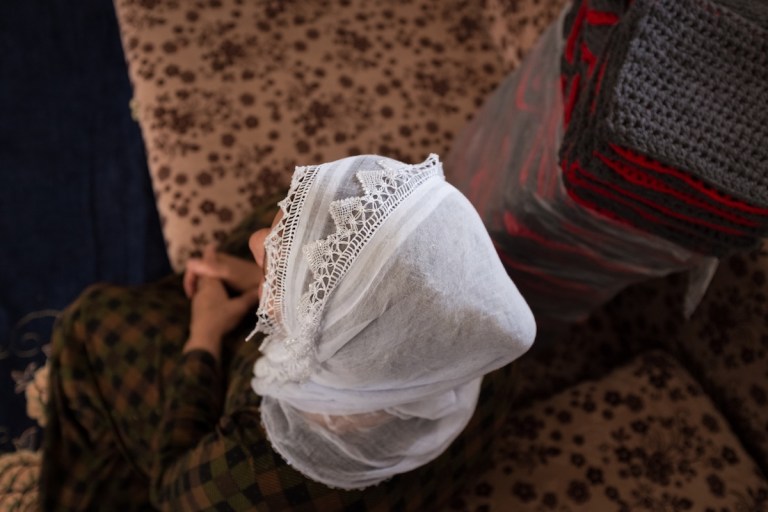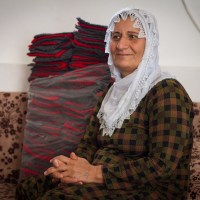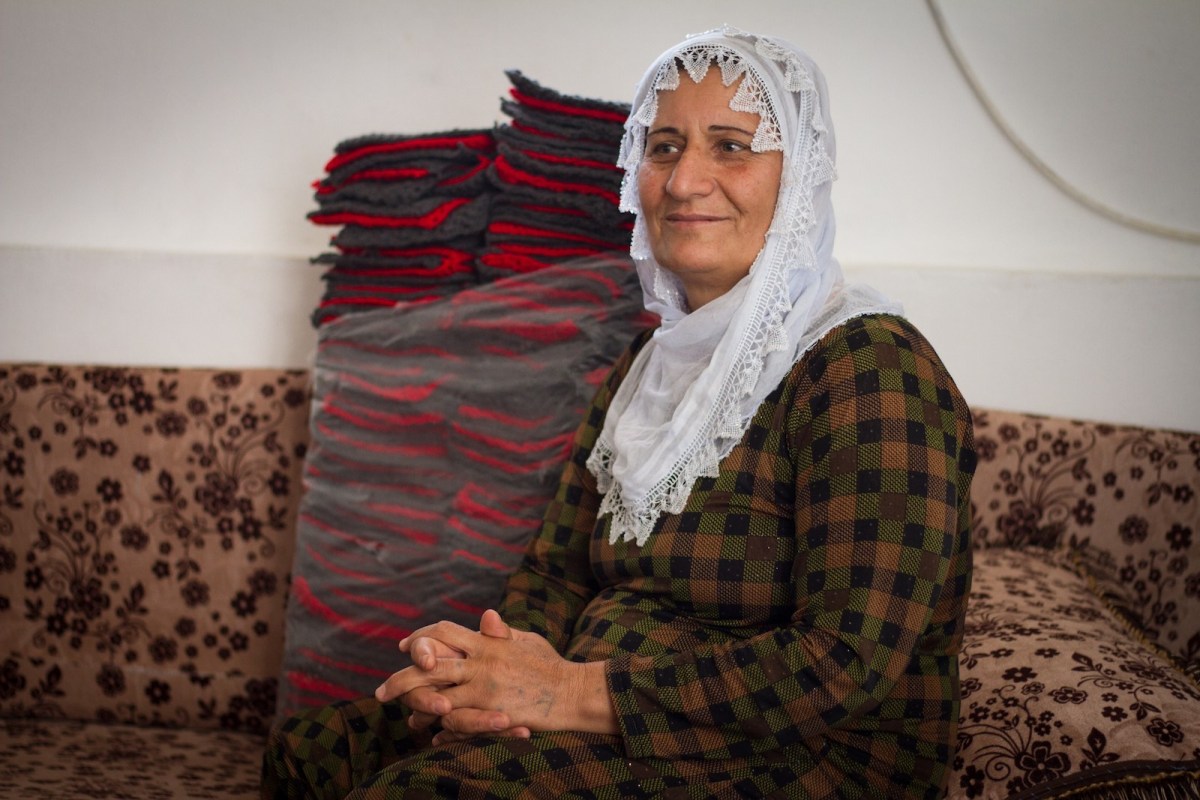When Naza sits beside the stack of newly crocheted washcloths, it nearly comes to the top of her head. The same was true when we visited last week. Some women crochet one or two washcloths a day. Not Naza.
She is amazing.
We ask if her hands hurt from working so much. “No,” she says with a smile, “they don’t.”
We ask how she can work so fast. Naza smiles again.
“It’s like therapy.”
Making washcloths not only gives Naza the chance to earn money to help support her family, but it also gives her mind a place to rest.
You see, excess time is no friend to displaced families.

Before Naza and her loved ones fled Syria, they had a comfortable life. She and her husband worked hard all throughout their marriage to give their children a good home and a good education. Now, when Naza is finished cleaning their tiny cinder block home in the refugee camp, when she’s finished cooking for her family, the only thing left to do is to think about all her family has lost. It’s soul-killing.
When Naza’s hands are busy with these washcloths, though, she doesn’t think about what she’s lost. She doesn’t think about her fears of the future. She is firmly rooted in the present. Naza knows what she will earn from each washcloth she makes, and as she adds stitches to each row and pays careful attention to make sure her work stays square, she thinks about what she can do for her family this week with the money she is earning.
When Naza has a crochet hook in her hand, she is rooted in possibility and hope.
Shop Sisterhood Knits today. Each washcloth provides income and stability for a refugee family like Naza’s—and a renewed sense of purpose for the women who make them.



